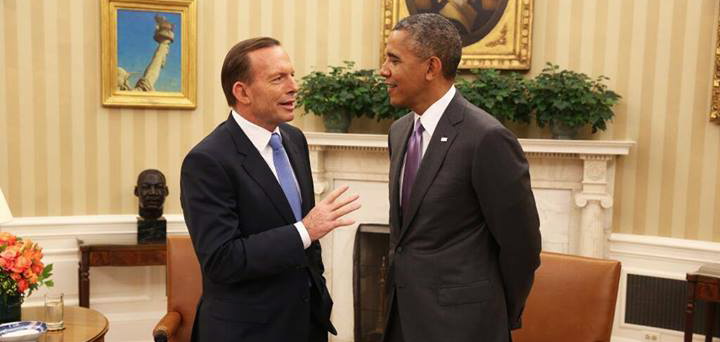An Ever-Changing and Important Alliance

Alliance 21, in partnership with the United States Studies Centre at the University of Sydney, recently hosted an event on the ‘US-Australia: The Alliance in an Emerging Asia’.
The conference brought together senior government officials, business people, military leaders and academics from both Australia and the US to debate future policy in the areas of politics and security, trade and investment, resources and energy and advanced manufacturing. Despite the considerable breadth of the discussed topics, the message of the day was the ever-changing and important alliance between Australia and the United States. Minister for Foreign Affairs Julie Bishop focused on the continued applicability of the Australia-US alliance as well as necessary changes to the agreement that are underway.
Importance of the Alliance
As a broad overview of the areas that the two countries cooperate in, US Ambassador to Australia John Berry cited the bilateral force posture agreement, the G20 summit, free trade agreements and partnerships in space. While some speakers highlighted specific cases of cooperation, representatives of the US government, US marine corps and the Australian Government reiterated that the basis for cooperation is founded on each country’s vital interests. Further delving into examples that could be classified as achieving the goals of realism with the help of liberal strategies, US Marine Corps Forces of the Pacific Major General Richard L. Simcock II mentioned shared interests in the South China Sea, North Korea, climate change and cyber attacks.
To demonstrate the wide span of areas of cooperation, speakers mentioned the countries’ commitment to increased energy production and increased trade as a result of the Australia-US free trade agreement, as well as commitment to implement the TPP and share findings from the fields of manufacturing and tertiary education.
Speakers from several different fields noted that Australia-US cooperation is built on a history of bilateral and multilateral agreements based on the two countries’ shared values.
Changes in the Alliance
Despite multiple examples of how Australia and the US have and continue to cooperate, there were also several examples of how relations between the countries are changing based on new developments in the alliance. Relations between Australia, the US and China were cited as an example of changing interests as were increasing competition to fill energy gaps between energy producers in the two countries. Panellists discussing politics and security mentioned that Australia might not be able to align itself as easily with the US in a rising Asia as it has in the past.
On a more positive note, others spoke about changes to the areas in which Australia and the US can cooperate. Examples included traffic congestion investment and increased production for the growing Asia-Pacific middle class, from which both countries can benefit.
Talks also focused on ways in which the two nations can help other countries, as well as on how they can aid each other in their relations with other governments. This topic mainly focused on China. For example, Shadow Minister for Foreign Affairs and International Development Tanya Plibersek said the two countries should help to shape China’s rise and that Australia should especially help shape relations between China and the US. Speakers suggested that this could take shape in the form of Australia helping to dissipate tensions and that cooperation between the three countries could assist in building peaceful neighbourly relations.
Despite several examples of how the alliance between Australia and the US is and will continue to change, examples of the importance of this enduring alliance far outshone other messages. It is clear that the Australia-US alliance will continue to be important to both countries and will flex to accommodate necessary changes.
For more details and full video coverage of the conference, visit the Alliance 21 website.
Craig Beyerinck is an intern at the Australian Institute of International Affairs National Office. He can be reached at intern4@20.185.176.227.


